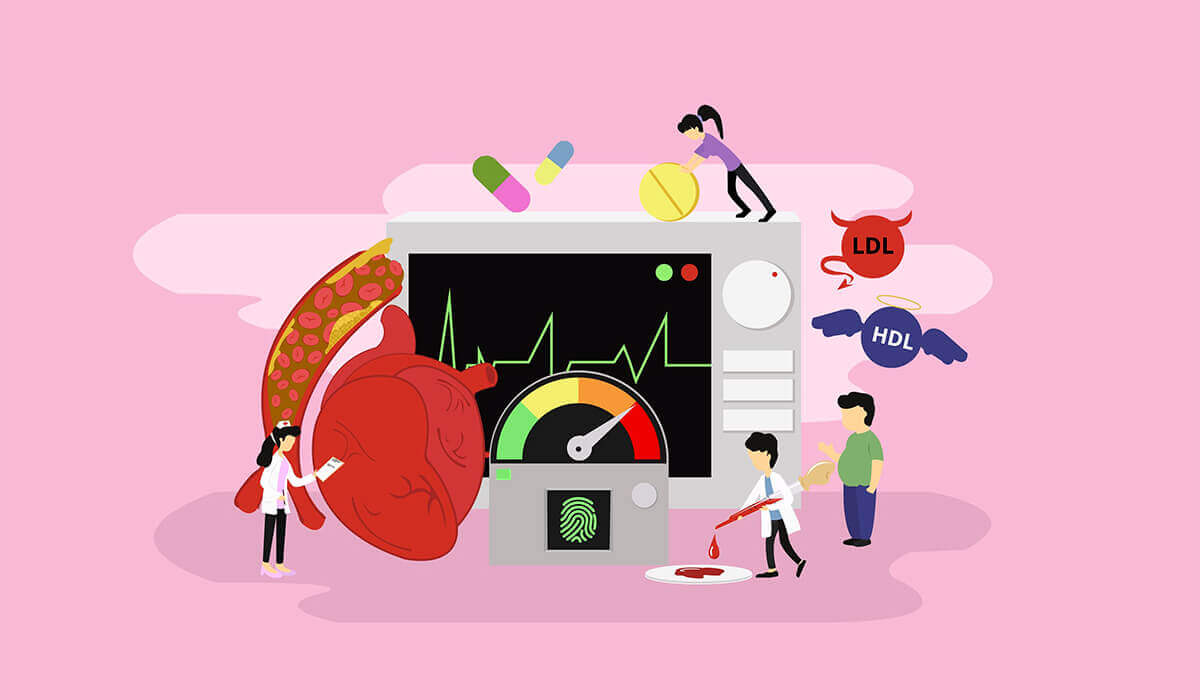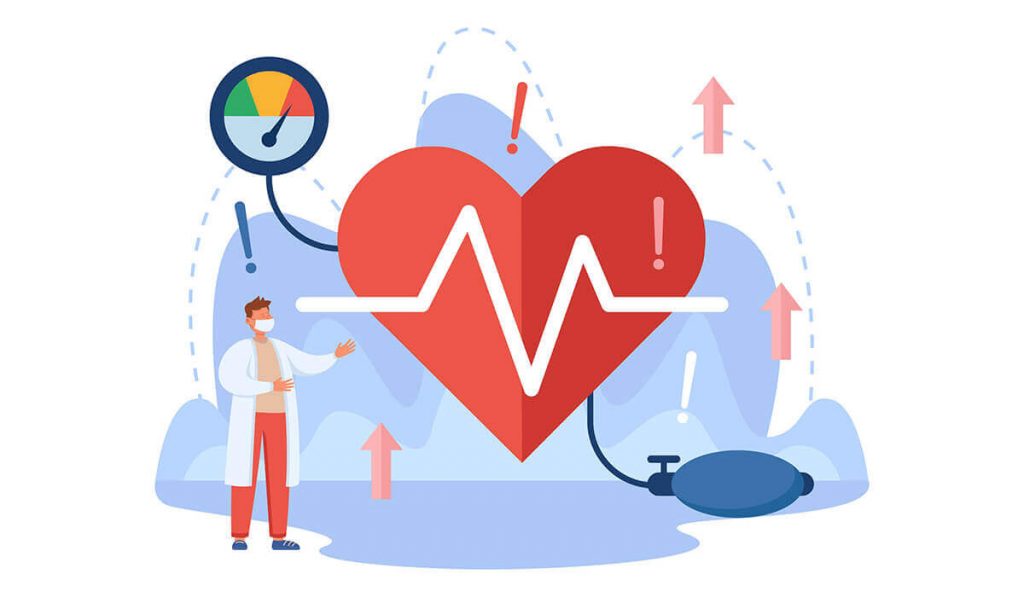
Diabetes and Cholesterol: How to Manage & Minimize Risks
Diabetes has been shown to lower your good cholesterol (HDL) and raise triglycerides (fats in your blood). This can lead to an increased risk of heart disease and stroke.
Read on to learn more about the importance of managing diabetes and cholesterol, and what you can do to avoid complications.
Why Managing Cholesterol is Important When You Have Diabetes?
 Those with diabetes are at a higher risk of having high cholesterol. In simple terms, this is because high blood sugar makes blood vessel walls sticky and causes cholesterol to stick to the side of these vessels. Over time this causes blood vessels to narrow and decrease blood flow, like a traffic jam. The cholesterol stuck to the blood vessels is called plaque, which can break off and cause clogged arteries. These clots can lead to heart attack, stroke, organ death, and more.
Those with diabetes are at a higher risk of having high cholesterol. In simple terms, this is because high blood sugar makes blood vessel walls sticky and causes cholesterol to stick to the side of these vessels. Over time this causes blood vessels to narrow and decrease blood flow, like a traffic jam. The cholesterol stuck to the blood vessels is called plaque, which can break off and cause clogged arteries. These clots can lead to heart attack, stroke, organ death, and more.Not all of the cholesterol in our bodies is bad. Let’s break down what each of the 4 components means:
- Total Cholesterol: This is all parts of your cholesterol added together
- LDL (lousy cholesterol): This is the cholesterol that sticks and clogs arteries
- HDL (healthy cholesterol): This helps to remove the bad cholesterol from your arteries. We want this number to be higher
- Triglycerides: These are the fats that float around our bloodstream. We get these from the food that we eat but also from extra sugar that the liver has converted.
How Can You Avoid Complications?

There are quite a few ways that you can lower your bad cholesterol and increase your good cholesterol. One way is to exercise regularly. Cardiovascular exercise, like running, biking, or walking, is one of the best ways to increase your HDL levels. Controlling your blood sugar will help make your blood vessels less sticky to help prevent any further plaque formation. Talk with your doctor about some medications that may be helpful to lower cholesterol as well.
- Eat fish that’s high in omega 3 at least twice weekly, like salmon.
- Include vegetables, beans, and whole grains in your meals.
- Utilize olive oil instead of other oils and butter.
- Use fresh fruit as a dessert.
Summary Patients with diabetes are at an increased risk for heart disease and stroke. Many patients with diabetes also have high cholesterol, and if not managed can lead to serious complications. These complications can include heart attack, stroke, and fatty liver. You can help manage your cholesterol and decrease your risk of complications with diet, exercise, and medications.
Disclaimer: Any information provided is not intended as medical advice. Iowa Diabetes is not responsible for any information from third parties.





